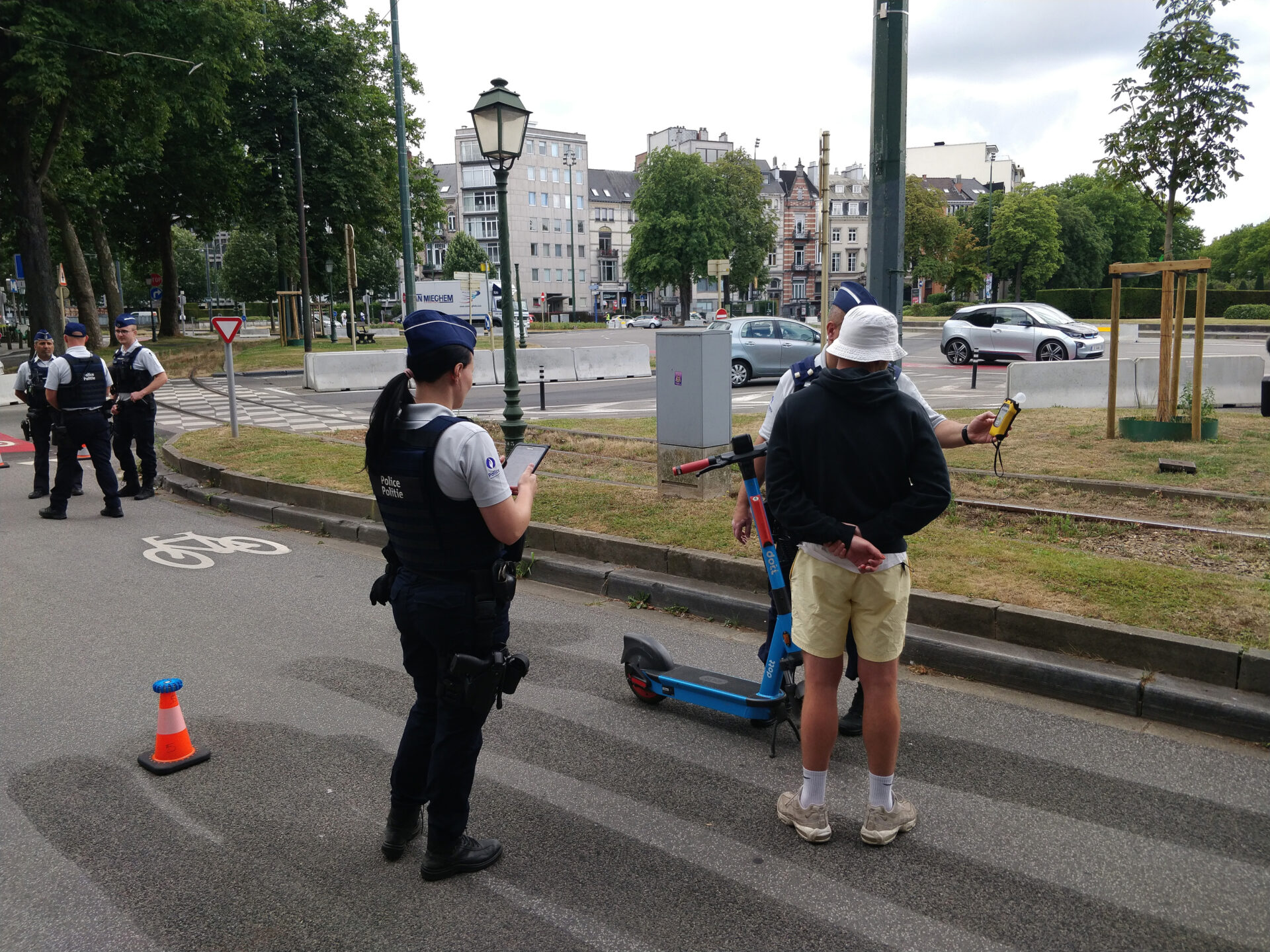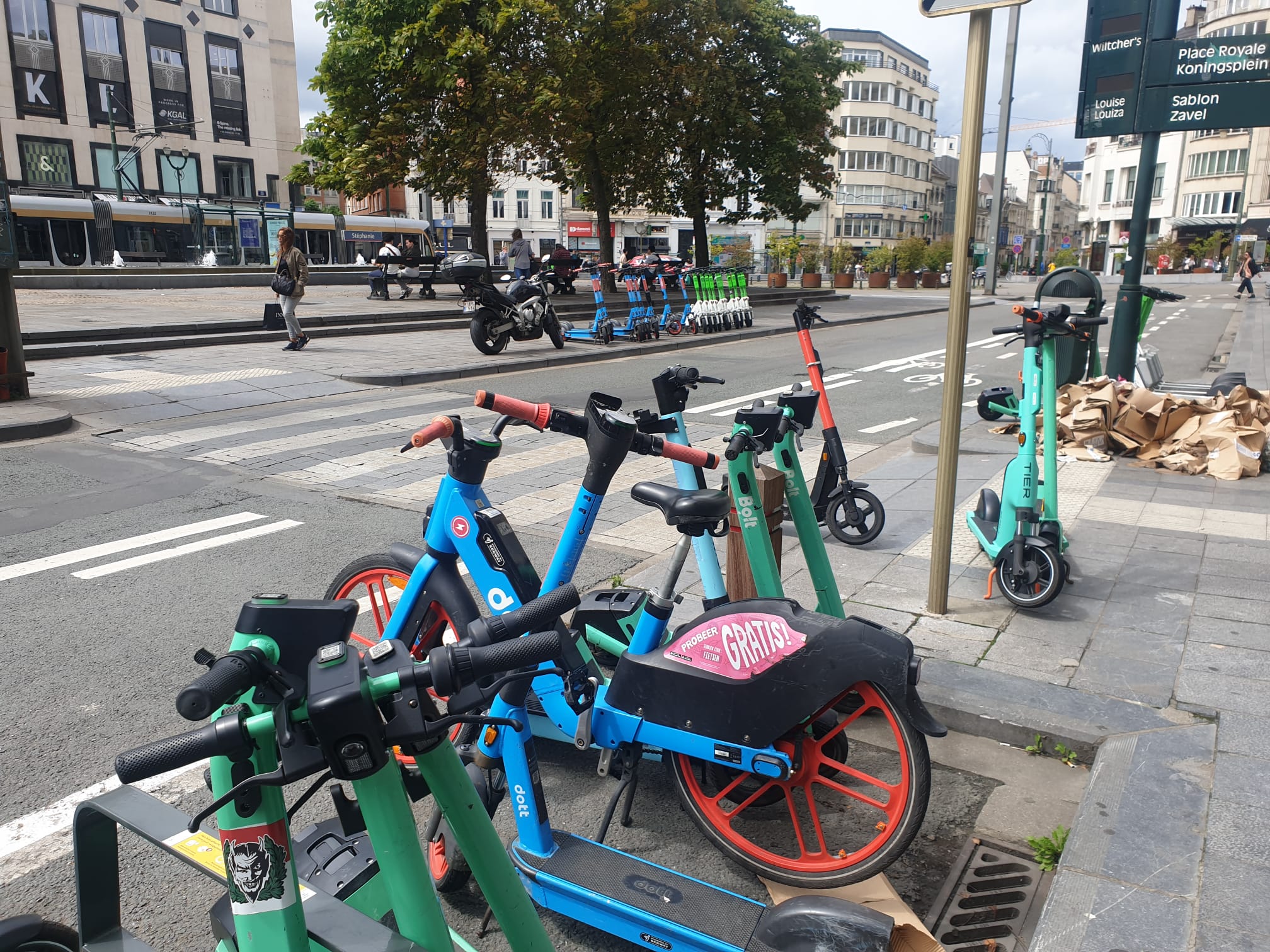After years of delays and discussions with limited action, Brussels is due to make a decisive move to tackle the proliferation of e-scooters, dramatically reducing their number from next week.
Many of the capital's streets have seen a blight of the vehicles, which often litter pavements obstructing pedestrians. However the number of shared e-scooters will fall from 21,000 to 8,000 by Thursday 1 February.
The region implemented measures that went beyond those adopted in Belgium in 2022, forbidding people under the age of 16 from riding an e-scooter and making riding in pairs and on pavements illegal. However, the vehicles remained a source of nuisance and inconvenience, as many aspects of the decree were difficult to put into practice and many users paid no heed to the rules.
A new decree to better regulate shared e-scooters and e-bikes was agreed on last summer. It set out plans to remove more than half the number of shared vehicles in the region. From 1 February, only two companies will operate in Brussels: Bolt and Dott.
Moving away from Brussels
In January, the providers that were not chosen to stay in Brussels – Lime, Pony, Voi and Tier – started informing customers via their apps that 1 February marks the end of their service in the capital.

Police regularly carry out controls on e-scooters in Brussels since regulations came into place in July 2022. Credit: Belga
Pony started removing its 1,500 share scooters from Brussels at the end of 2023, moving them to Antwerp. All remaining vehicles will have to be removed from the region in just over one week.
The number of shared electric bicycles and step-through scooters, meanwhile, will increase between now and 2027 – from 3,300 to 7,500 e-bikes and 170 to 600 shared step-through scooters.
Bolt and Dott, alongside Voi, were chosen as the three providers of shared bicycles (each providing 2,500 bikes), while Felyx and GO Sharing will be the only companies providing shared step-through scooters (300 each). The German company Tier and the French company Pony have been nominated as the two authorised operators for shared cargo bicycles (150 each).
Regulated parking
More drop zones will be created in Brussels while the long-awaited ban on parking outside designated zones in public spaces will come into force from 1 February.
Operators will have to make it impossible to end a journey outside specific parking zones and will be fined if their vehicles are misplaced or removed by authorities if it cannot be parked in a drop zone within a radius of 150 metres.

Drop-off zones have so far failed to tidy up Brussels streets. Credit: Lauren Walker / The Brussels Times
Brussels authorities hope that the decrease in shared vehicles will finally put an end to the issue of e-scooters being strewn about. The drop-off zones will be enforced in 11 Brussels municipalities (Ixelles, Etterbeek, Evere, Ganshoren, Jette, Koekelberg, Berchem-Sainte-Agathe, Saint-Gilles, Woluwe-Saint-Pierre, Auderghem and Watermael-Bosvoorde) as these already have sufficient drop zones in public spaces.
For the other municipalities, operators will use their GPS tracking system to lock virtual drop zones in locations chosen by the authorities. The markings will be gradually installed "as soon as weather conditions allow," Brussels Mobility stated.
The Brussels Region previously announced its ambition to increase the number of drop zones from 1,000 to 1,500 by the time the decree comes into force, but the counter will likely stand at 1,332, with 425 drop zones on regional roads and 907 on municipal roads.

